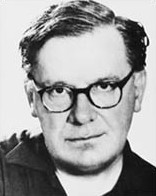 W
WConstantine Peter Cavafy was an Egyptiot Greek poet, journalist and civil servant. His consciously individual style earned him a place among the most important figures not only in Greek poetry, but in Western poetry as well.
 W
WKonstantinos Dimitriadis better known by Dinos Christianopoulos was a Greek contemporary and post-war poet, novelist, folklorist, editor and researcher.
 W
WTilemachos Chytiris is a Greek politician from the Panhellenic Socialist Movement (PASOK) who has served as member of Parliament and minister. He has also published poetry collections.
 W
WNikos Dimou, born in 1935 in Athens, is a Greek writer and columnist. He started out as a copywriter and went on to become one of the best-known Greek intellectuals.
 W
WVasiliki “Kiki” Dimoula was a Greek poet. She was the first female poet ever to be included in the prestigious French publisher Gallimard’s poetry series.
 W
WNikos Egonopoulos was a modern Greek painter and poet. He is one of the most important members of "Generation of the '30s", as well as a major representative of the surrealist movement in Greece. His work as a writer also includes critique and essays.
 W
WOdysseus Elytis was a Greek poet, essayist and translator, regarded as a major exponent of romantic modernism in Greece and the world. He is one of the most praised poets of the second half of the twentieth century. In 1979, he was awarded the Nobel Prize in Literature.
 W
WAndreas Embirikos was a Greek surrealist poet and one of the first Greek psychoanalysts.
 W
WRigas Feraios or Velestinlis ) ; 1757 – 24 June 1798) was a Greek writer, political thinker and revolutionary, active in the Modern Greek Enlightenment. A victim of the Balkan uprising against the Ottoman Empire and a pioneer of the Greek War of Independence, Rigas Feraios is remembered as a Greek national hero.
 W
WIoannis Polemis was a Greek poet.
 W
WAnastasios-Pandeleïmon "Tassos" Leivaditis was a Greek poet.
 W
WDimitris Lyacos is a contemporary Greek poet and playwright. He is the author of the Poena Damni trilogy. Lyacos's work is characterised by its genre-defying form and the avant-garde combination of themes from literary tradition with elements from ritual, religion, philosophy and anthropology.
 W
WPetros Márkaris is a Greek-Armenian writer of detective novels starring the grumpy Athenian police investigator Costas Haritos.
 W
WCostas Montis was an influential and prolific Cypriot poet, novelist, and playwright.
 W
WKostis Palamas was a Greek poet who wrote the words to the Olympic Hymn. He was a central figure of the Greek literary generation of the 1880s and one of the cofounders of the so-called New Athenian School along with Georgios Drosinis, Nikos Kampas, and Ioannis Polemis.
 W
WAlexandros Panagoulis was a Greek politician and poet. He took an active role in the fight against the Regime of the Colonels (1967–1974) in Greece. He became famous for his attempt to assassinate dictator Georgios Papadopoulos on 13 August 1968, but also for the torture to which he was subjected during his detention. After the restoration of democracy, he was elected to the Greek parliament as a member of the Centre Union (E.K.).
 W
WMaria Polydouri was a Greek poet who belonged to the school of Neo-romanticism.
 W
WAlexandros Rizos Rangavis or Alexander Rizos Rakgabis, was a Greek man of letters, poet and statesman.
 W
WYiannis Ritsos was a Greek poet and left-wing activist and an active member of the Greek Resistance during World War II.
 W
WGiorgos or George Seferis, the pen name of Georgios Seferiades, was a Greek poet-diplomat. He was one of the most important Greek poets of the 20th century, and a Nobel laureate. He was a career diplomat in the Greek Foreign Service, culminating in his appointment as Ambassador to the UK, a post which he held from 1957 to 1962.
 W
WNikos Sideris, is a Greek psychiatrist, translator, poet and writer.
 W
WDionysios Solomos was a Greek poet from Zakynthos, but his grandfather was from Candia (Heraklion) and moved to Zakynthos after the conquest by the Othomans in 1669. He is best known for writing the Hymn to Liberty, of which the first two stanzas, set to music by Nikolaos Mantzaros, became the Greek and Cypriot national anthem in 1865. He was the central figure of the Heptanese School of poetry, and is considered the national poet of Greece—not only because he wrote the national anthem, but also because he contributed to the preservation of earlier poetic tradition and highlighted its usefulness to modern literature. Other notable poems include Ὁ Κρητικός, Ἐλεύθεροι Πολιορκημένοι and others. A characteristic of his work is that no poem except the Hymn to Liberty was completed, and almost nothing was published during his lifetime.
 W
WPanagiotis Soutsos, was a Greek poet, novelist and journalist born in Constantinople. He was the brother of the satirist Alexandros Soutsos and cousin of writer and diplomat Alexandros Rizos Rangavis. Soutsos is known to be one of the pioneers of romanticism in Greek poetry and prose as well as a visionary behind the new Olympic Games who inspired Evangelis Zappas to sponsor their revival.
 W
WIlias Tantalidis was a Greek poet of the First Athenian School and educator.
 W
WGiorgos Ch. Theocharis is a Greek novelist, poet and writer.
 W
WGeorgios Th. Vafopoulos was a Greek poet, prose writer but also just writer, teacher and journalist of the 20th century.
 W
WEleni Vakalo was a Greek poet, art critic and art historian.
 W
WAristotelis Valaoritis was a Greek poet, representative of the Heptanese School, and politician. He was also the great-grandfather of Nanos Valaoritis, one of the most distinguished writers of Greece.